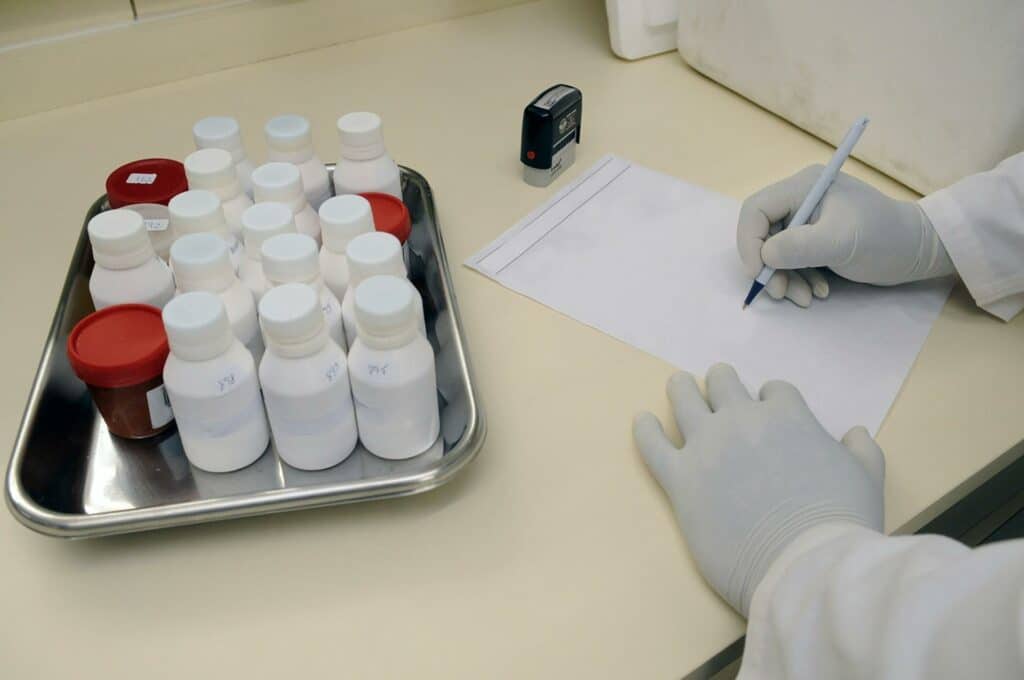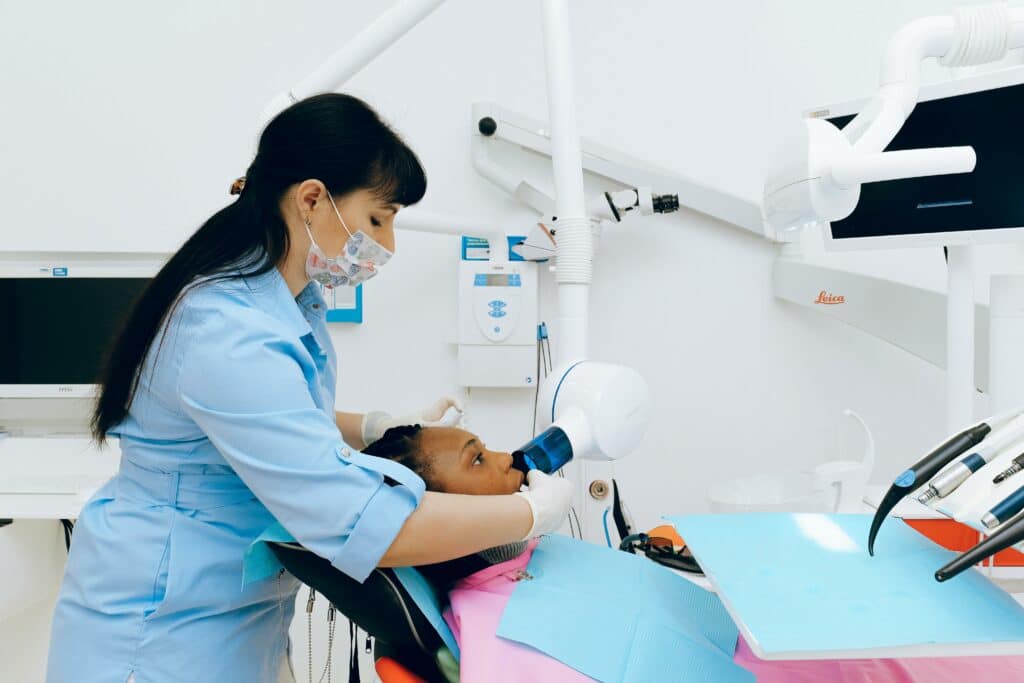The importance of medical competency for healthcare workers
Estimated reading time: 7 minutes

Medical competency is a complicated word with many meanings in different settings. Any care-based environment in the world of healthcare must train its staff.
This training should focus on competently applying and using medical techniques, as well as highly specific medical skills.
To avoid dangers, continuous learning, and development are essential for healthcare workers to attain and maintain optimal competency.
This applies to all staff with person-to-person contact, rather than those just explicitly trained in nursing or medical professions.
Working directly with vulnerable people, this role requires training in many instances. This training is a must to ensure competent care and safety for the individuals involved.
Table of contents
What is medical competency?
Medical competency refers to the ability of a healthcare professional to perform their duties and responsibilities effectively and safely, in accordance with established standards of practice and regulatory requirements.
There are several key components that define medical competency:
- Knowledge: Having the appropriate level of theoretical and factual knowledge related to their field of practice, including current evidence-based guidelines, protocols, and best practices.
- Clinical skills: Showing proficiency in the technical and procedural skills required for patient care, such as physical examinations, diagnostic procedures, treatment interventions, and appropriate use of medical equipment.
- Interpersonal and communication skills: The ability to effectively communicate with patients, their families, and other members of the healthcare team, including active listening, empathy, and clear explanations.
- Professional behavior and ethics: Adhering to ethical principles, maintaining patient confidentiality, exhibiting integrity, and upholding professional standards of conduct.
- Critical thinking and decision-making: The ability to analyze information, solve problems, and make sound clinical judgments based on available evidence and patient-specific factors.
- Practice-based learning and improvement: Engaging in continuous professional development, seeking feedback, and incorporating new knowledge and skills to improve patient care practices.
- Systems-based practice: Understanding and navigating the broader healthcare system, including coordination of care, resource use, and keeping to safety protocols and quality improvement measures.
Medical competency is typically evaluated through various methods, such as:
- Educational trainings and licensure examinations
- Ongoing professional development and continuing education
- Peer review and performance evaluations
- Clinical audits and quality assurance processes
- Certification and credentialing by professional organisations
Maintaining medical competency is crucial for ensuring patient safety, providing high-quality care, and promoting public trust in the healthcare system.
Healthcare workers are expected to continually improve their knowledge, skills, and abilities throughout their careers to meet the changing standards of medical competency.

Why is Medical Competency important in healthcare?
Things go wrong
When working with any type of people in a care situation, things can – and do – go wrong.
Medical competency is particularly important when caring for ill or vulnerable individuals with complex medical conditions or ongoing health issues.
Such training helps healthcare providers deliver effective care and support that improves patients’ health outcomes and quality of life.
Training your staff to be competent in many forms of medical situations, such as peg feeding training or catheterisation training, can ensure that in cases where something does happen, they are equipped to act and able to help that person to the best of their ability.
By learning and developing the skills to perform medical functions correctly, you can provide better care to your patients. You can also offer support. A quick resolution should something unexpected occur, whether it’s a simple medical error or a trip or fall.
Many care providers or healthcare employees must have confidence in medical skills and the ability to perform under pressure. Training in these skills can help them accomplish that.
Competency in medical skills can help your employees to identify potential issues ahead of time.
Furthermore, it can enable them to provide care or treatment to those in need without delay or the need for additional consultation or sourcing someone with the necessary training level.
Ultimately, this can contribute to better patient outcomes and a more efficient care environment.
These skills can provide the ideal way to minimize incidents or problems that may occur in the average shift. This can lead to a safer and more efficient workplace environment for both patients and healthcare providers.
Medical Competency is important to provide a better quality of care
Working in healthcare is often as hectic and busy as it is rewarding.
Waiting for a trained staff member can impact productivity during a shift. This may cause inconvenience to other residents or patients as well. It can affect other patients and result in lower quality care.
More staff trained on medical procedures ensures excellent quality care. Training on potential situations can create a buffer. It also ensures that each person is tended to as swiftly as possible.
Ensuring a larger number of competent staff members can guarantee better medical attention for those who require it. This can lead to the best possible care for patients. Additionally, it can lead to improvements in the overall operation of a healthcare facility.
This approach not only benefits those in your care but also enables your staff to perform their duties more efficiently. With the necessary training in place, they can accomplish more on each shift than they could have otherwise.
Being able to schedule shifts more freely is a benefit of having a larger number of medically competent staff. The healthcare facility is better staffed at all times and ready to deal with any situation due to the ensuring.
Providing care requires meeting the needs of patients, which includes their comfort. Medical competency can equip employees with the skills needed to ensure patient comfort and to provide the best medical care possible. This ensures that staff take good care of patients and address their health needs effectively.
Healthcare providers can provide the care each person needs by understanding what is needed. This includes tasks such as changing catheters, as well as more complex care.
Available Course For Individuals and Groups: Safer Handling of Medication Course
Upgrade internally to achieve Medical Competency
Many healthcare facilities and businesses opt to hire externally when it comes to employees with certain medical skills, or even use agency workers as a way to meet that need.
However, these methods cannot guarantee the quality of work you need or the level of competency you expect. Additionally, they cannot determine if the person is the right fit for your working environment.
As most people who work in the industry know, your communicative and empathetic skills can be just as crucial in many care-based roles as your physical capabilities.
Opting to upgrade or upskill your internal staff can offer an excellent alternative to hiring externally and can benefit a facility twofold.
First, you can show how you value and reward internal employees who wish to climb the ladder and better themselves. This can also apply to the quality of care that your organization can offer.
You can tailor in-house training to fit your needs and schedule. Making it a convenient option in a busy and constantly changing healthcare environment. Internal staff who undergo medical training can be of great help in handling medical situations.
By choosing to upskill your internal employees, you can gain more flexibility over the medical competency you require. This enables you to select specific training that is relevant to the needs and requirements of your healthcare facility.
Internal Training
Internal training can provide a perfect fit for your needs. Healthcare providers can base this on the needs of existing patients or those being cared for, or take precautionary measures for potential situations and scenarios.
Whatever your particular line of healthcare and the exact needs of those you care for, confidence and competency when it comes to medical support and care are a must for just about any facility or business.
With those skills, it’s possible to provide the best possible care, ensure your employees are great at what they do and even offer insight and a reduction in future incidents or illnesses.
If you’re considering training for your healthcare workers, choosing a company that understands your needs is critical.
Choosing Caring for Care for medical competency training
Caring for Care designs its training and development courses to have the most impact without overstepping on time, considering the hectic and busy schedule of every day working in the industry.
Efficient and driven by quality, not quantity. We focus on what’s essential and ensure that you have medically competent and confident employees.
Contact us today to find out more about the courses we offer.
Important Sections to Visit
Let us Help you
We’ll help you find the right course for your needs. Tell us a little bit about your situation and what you would like to achieve.
We’ll get back to you within one working day.
